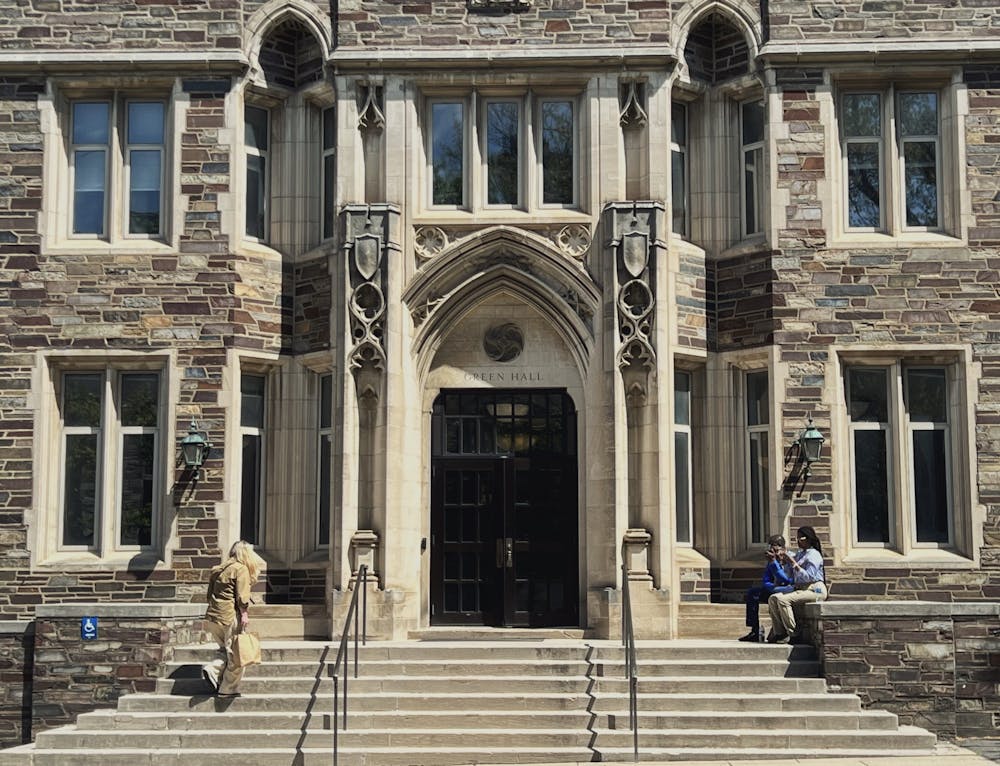University faculty approved all eight minors up for consideration, including two new minors in Climate Science and Philosophy, on April 24. Of the six brand-new minor programs approved so far, most are pared-down versions of existing majors, opening the door for students to deeply explore areas of studies without declaring.
The brand-new minors approved on April 10 include History of Science, Technology, and Medicine; Classics; Quantitative Economics; English; and History.
Of the departments that have a new approved minor that is a version of an existing major, all are humanities departments. The minor gives non-majors a chance to receive credit on their transcripts.
For Stephenie Chen ’25, the announcement of a minor in History of Science, Technology, and Medicine, a track within the History major, played a pivotal role in her decision to declare COS.
“I thought it was practical to major in Computer Science because of my career interests,” she told the ‘Prince.’ “I was going to major in History until they announced there was going to be a minor in the History of Science.”
Professor John Burgess, Undergraduate Director of the Department of Philosophy, pointed to student interest in a Philosophy certificate as a reason for the Department’s proposal of a minor program.
“We decided to offer a minor because every year at the academic expo or our open house there were one or two students asking about the possibility of a certificate,” Burgess wrote to the ‘Prince. “[W]e often had students doing a lot of courses with us without there being any way for us to acknowledge this formally on their transcripts. Now there will be.”
Notably, 27 existing certificate programs have not yet been proposed as minors including African American Studies, Entrepreneurship, and Quantitative and Computational Biology. According to Undergraduate Student Government (USG) Academics Chair Srista Tripathi ’25, the minor approval timeline is based on when a department submitted a proposal to the Faculty Committee on the Course of Study (COCS).
“This is still not a finite list, and departments can continue to propose minors as time goes on,” Tripathi wrote in an email to the ‘Prince.’

In April of 2022, University faculty approved a proposal to create a new “minors” program. Besides the two new minors, the certificates turned into minors approved on April 24, include Asian American Studies, Environmental Studies, Global Health and Health Policy, Journalism, Latino Studies, and Medieval Studies.
Of the new minor programs, the Climate Science minor, offered through the Department of Geosciences, provides an interdisciplinary path of study, similar to many certificate programs.
Current Chair of the Geosciences Department Thomas S. Duffy expects the incoming minor’s interdisciplinary approach “will allow any Princeton student to develop a fundamental understanding of the Climate Science that is needed today across a wide range of careers and disciplines.”
The Climate Science minor will consist of five classes: three to four core classes at the 100- and 200-level combined with one to two capstone electives at the 300-level. Duffy also noted that while the minor will be accessible to non-STEM students, “those with a stronger math and science background have the option to choose from more advanced electives at the 300- or 400-level.”
Wiley Kohler ’25, a Math major, is looking forward to the offering.
“The Environmental Studies and the Geological Engineering certificate, I think, don’t particularly cater to my interests,” he noted. “This would be a very exciting opportunity to pursue something that is both more expansive and focused in an area that I’m interested in studying, as someone who is taking grad-level courses in the Atmospheric and Ocean Studies department.”
The Philosophy minor requirements are a condensed version of the Philosophy major. Minor students will be required to take five courses rather than eight, across two areas of philosophy rather than three.
Of the 36 proposed minors, three-quarters originate from existing certificate programs. Requirements for former certificates are not expected to change dramatically in the transition to minors.
According to the co-Director of the Global Health and Health Policy program Heather Howard, there will be no changes to the program and students can expect a “seamless” transition. Undergraduate Director of the Program in Environmental Studies Corina E. Tarnita noted that the only substantial change in requirements is expanded options for independent work to include “a report based on work done during [a High Meadows Environmental Institute (HMEI)] internship or a junior paper submitted to fulfill departmental requirements.”
While internal requirements may not change significantly in the transition, new restrictions will be applied on what courses double count for a student’s major and their minor. According to the USG Academics Committee, this restriction will vary per department.
The Class of 2025 will be the first to graduate with minors. Students will be restricted to two minors — previously, there was no limit on the number of certificates. The existing certificate program will be phased out within two years. Until then, students who matriculate while certificates exist will be able to choose between obtaining up to “two minors or a combination of minors and certificates.”
The minors approved on April 24 will join nine programs approved on April 10. 36 minors have been proposed for the 2023–2024 academic year in total, with the decision on the final round of minors set to be announced on May 15.
Eden Teshome is a senior News writer and the head Podcast editor for the ‘Prince.’
Please send any corrections to corrections[at]dailyprincetonian.com.








